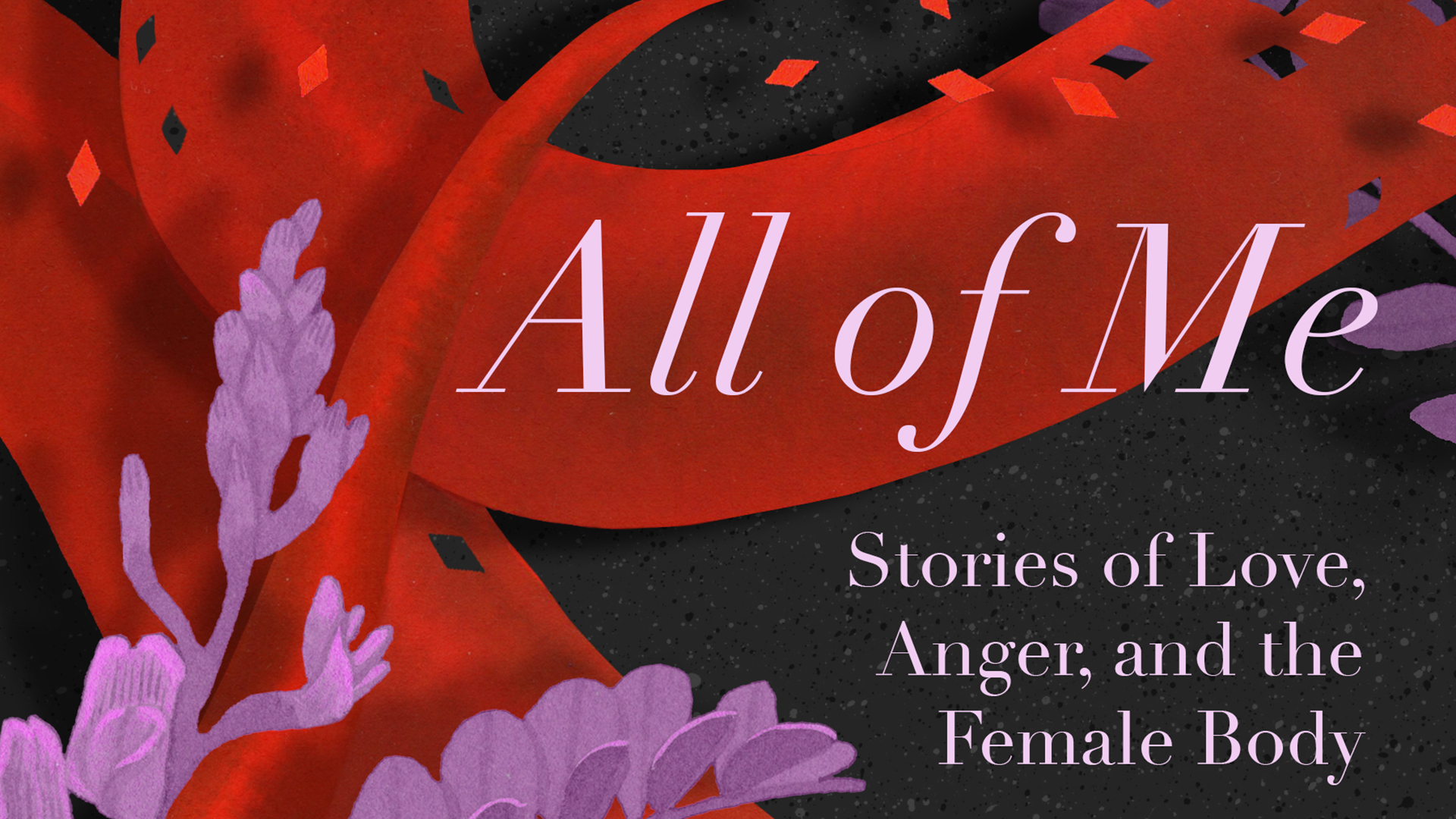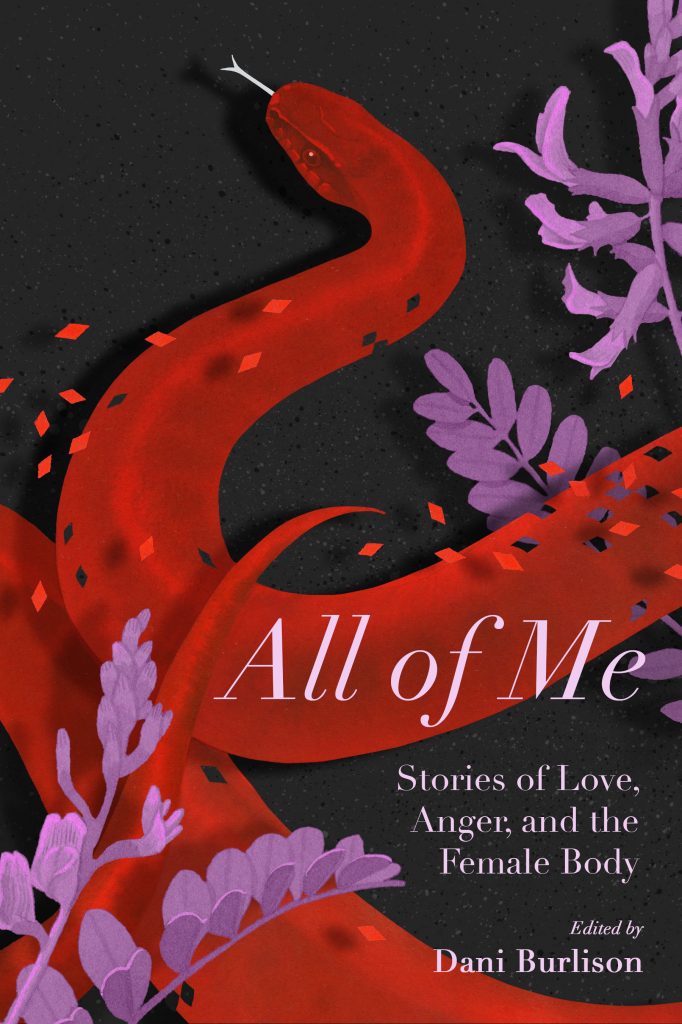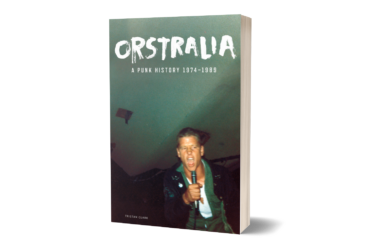
By Janet Frishberg
The Rumpus
September 11th, 2019
All of Me: Stories of Love, Anger, and the Female Body, a new anthology edited by Dani Burlison, centers the body—the body in search for justice, the body in pursuit of freedom, the body that needs care and healing, the body that is finding new ways to love. Burlison, a writer and teacher based in Santa Rosa, put together the anthology after publishing her Lady Parts zine series over the last couple years, which explored similar territory. About to start work on a third zine, she instead sent the concept for All of Me to PM Press on the advice of a friend. Less than a week later, they told her they were interested in publishing it as an anthology.
The resulting collection, which includes essays from Lidia Yuknavitch, Nayomi Munaweera, Melissa Chadburn, and Starhawk, among many others, centers an intersectional, radical feminism with a decidedly (though not exclusively) Northern California bent. There are certainly throughlines to the essays but also a diversity in terms of what’s on offer: abortion rights, queering gender, demystifying sex work, living as an undocumented student in college today, alternative parenting structures, self-defense as taught by and to Native women, and practical strategies for countering burnout in activism. The questions driving the collection include: How is this living in my body today? What has happened to me that deserves attention, care, affirmation, and permission? What do I need to speak about and remember as I continue the work of trying to dismantle the oppressive structures I live within?
Dani and I spoke recently about what it means to write while centering the body, practices for de-commodifying self-care, and the ways anger can become fuel for change.
***
The Rumpus: Reading this collection felt a bit like going to a delicious feminist potluck in terms of what was on offer. And you were very mindful about how you curated the guest list.
Dani Burlison: Yes. I think one piece that was really important to me when I put this collection together was including voices of trans women, who have been so pushed out of a lot of feminist spaces. There’s a lot of—I don’t even want to say conflict, because I don’t think it’s the trans women that are necessarily doing this, but this oppression of trans women by “radical” feminists. I had a couple people who didn’t want to be included in the book because I had a sex worker, trans women, and a couple nonbinary people in the book. That made it even more important to me. Trans women are so underrepresented and under attack—they’re probably at the highest risk for experiencing violence, especially trans women of color. It’s important for those voices to be lifted up and celebrated and included in feminist spaces, and they’re not always, so I wanted to do that in this book. I also made sure to include more voices of women of color than of straight, cis, white women in the book. Because a lot of feminist spaces are just centered around a certain type of feminist woman. I wanted to make sure that this book reflects the type of feminist world that I’m in, that I want to be in and am happy to be in.
Rumpus: The collection holds a lot of difficult material, in some cases material that would put people in danger of being targeted by our legal system or the current administration’s policies. How did you work with this challenging or sensitive material? How did you decide what best to do as an editor in those situations?
Burlison: I teach memoir writing classes; I have been for almost six years now. The thing that comes up with my students over and over is: How do we express our vulnerability and be honest? Of course, it can be healing to write about and process some of the heavier incidents in our lives, but at the same time, not everybody has support around coming out, whether it’s as an assault survivor, with your sexuality, if you’ve had an abortion. There are so many people that don’t have a super liberal family or hometown that’s just going to embrace them with that information.
I was really conscious with that and discussed it with the contributors, especially with a couple people that I interviewed. I interviewed a sex worker and also an undocumented woman who’s a student here in California. We talked about the best way to protect their identities and I made it clear that they didn’t have to share identifying information. There are also two other writers in the book who use aliases because their stories could have put them at risk. My priority, even more so than getting these experiences and voices out there, was to protect them and make them feel safe sharing.
As a writer, I felt a bit anxious sharing my very personal story about having an abortion in a clinic that was firebombed within a day after I left. I don’t come from a liberal place or a necessarily liberal family; it’s exposing. This was in 1992 and I still have this piece of me that gets so anxious and triggered because of how violent and terrible the protesters were to me that day. I was eighteen years old; I’m forty-five now. But when I hear about people protesting clinics there’s still a piece of me that’s just really fucking angry.
Rumpus: I have a question about anger, specifically: while it isn’t the only topic in these essays, anger is a strong theme in the collection. I’m curious how your personal relationship or professional relationship with anger and rage evolved over the course of working on this anthology.
Burlison: I love that. I want a professional relationship with my anger!
This isn’t in the book but in one of the zines I wrote about having had a lot of early childhood trauma, and no emotion was necessarily safe for me to express, but definitely not anger. Then there was a time period in high school when I really started getting angry and lashing out. I had to go to this terrible anger management group for teenagers. In that particular group, I felt so shamed. They were like: Anger is bad, stuff it down, get rid of it! It was super dysfunctional and unhealthy. But I was sixteen or seventeen. After that, anytime I felt angry about anything I just thought, this is terrible, and I internalized it and felt guilty. And I felt angry at myself for feeling angry.
Then I got really far away from that town and that culture. It started with activism—I was angry about things outside of myself. Not even necessarily things that were happening to me or that I was experiencing on a personal level. But being angry about the issues I was working on at that time, in my early twenties, that helped. That became this entry point for me to start feeling okay with expressing my own anger. And that’s progressed over the last couple decades. There are so many things I had justifiable rage over, but I didn’t feel safe or okay with expressing it. I know that’s true for so many of us. Women aren’t supposed to be angry; we’re supposed to be polite and agreeable. If we’re too outspoken we’re shunned and stigmatized. I still get so pissed about it! That activism was the entry point into seeing that anger can actually be fuel for changing things in a positive way.
Rumpus: Going back to your essay, can you tell us more about the process of writing it? Topically, it felt super important and powerful; craft-wise, I’m interested in your decision to include the last section that’s in italics, which brings in that voice of you now and gives the historical context around the clinic being firebombed.
Burlison: First, a bit of context: That clinic is in Redding, California in the north Sacramento Valley. Just recently, after I’d already written the essay, I did some research. Because I was eighteen at the time, I didn’t know how that clinic compared to anywhere else; going there was my first gynecological exam. Like, I’d never been to a gynecologist before. And so I wondered sometimes if I had just been dramatic, and if it was really that bad. But I found this amazing article written several years after my abortion that was in the Chronicle, about how the place I went was one of the scariest clinics in California. It was protested more heavily than any other one. It was firebombed and burned down by the same guy twice. The reporter, through his interviewing, painted this picture that was so validating for me. Like, I was not overreacting. Those protestors were extreme, and terrifying.
It took me a long time to write about it. I was also nervous about my kids finding out. I have a twenty-three-year-old and an eighteen-year-old now so they were both teenagers at the time when I first started working on the essay. I just felt so nervous about how they were going to react to me. And they were just like, “Everybody has abortions.”
Revisiting that time was pretty intense but it was good for me to get it out, to get out that last little nugget of shame that had been put upon me. Through the research I did, I found out that this guy had burned like seven clinics down. I mean, talk about fucking rage. It’s terrorism.
That context was important though, because it wasn’t just a story about me being vulnerable and somebody yelling at me when I had an abortion. No. There are men, mostly, out there terrorizing women at clinics. This happens all the time—whether it’s shootings or protesters throwing stuff, or doctors getting murdered in their churches. That was a big part for me to include in that story. And to talk about that level of organized violence against women that happens in this particular way.
Rumpus: This collection centers the body, and it
centers bodies that aren’t commonly represented, at least in a positive
way, in popular media. Not everyone thinks about the body as an entryway
into writing, but how did that become a part of your approach to both
writing and editing?
Burlison: That’s a really good question, I have to think about
that. I have a hard time compartmentalizing a lot of the things I see
that I’m writing about, especially with personal writing. Writing about
something that’s happened to your body or just happened in your life, it
sits in you, right? You can feel the emotion. So just on a personal
level, aside from writing, I’m often asking: How is this affecting my
health? Where am I feeling this in my body?
I recently got certified as a trauma-informed yoga instructor, too, which is one of the things that helped me through this process of working on this book. I’ve realized through yoga teacher training and the trauma-informed yoga therapy I’ve done for myself just how deeply these stories impact us on a physical and emotional level. It doesn’t feel separate for me. Especially with women, telling our stories about our bodies. The emotional stuff and the physical stuff is so intertwined it’s hard for me to separate it out.
Rumpus: There was one part in your conversation with Ariel Gore where you two talked about wanting to welcome in new activists that are feeling motivated after the 2016 election. And you two spoke about that balance of wanting people to feel welcome who are newer to activism but also wanting to hold people to high standards with their behavior. Is there more you’d like to say about that tension?
Burlison: I have this conversation a lot. I love my activist community but people can be so self-righteous and it’s alienating. None of us are perfect; we’ve all had to have mentors in whatever area of our life that we’re trying to improve in, whether it’s writing or teaching or activism. There’s usually been somebody there that’s helping show us the way. Maybe it’s someone we know personally or some famous person whose writing we’re reading or lectures we’re listening to.
But in my generation—I’m a Gen Xer—I feel like sometimes we can be assholes! We’re like, “Oh, we’re the coolest,” and everybody’s shit-talking millennials. But I believe having patience with people is so important. Not everybody is going to be perfect from the get go. Not everyone is going to have the perfect behavior or communication style.
That self-righteousness can be so alienating. And those perfect standards that people hold themselves to. We need younger generations with their energy and drive, and their hearts in the right place, to really be supported by old people like me. [Laughs]
I mean Ariel and I were cracking up at times talking about it in the interview, but it’s also serious. Ariel was like, “I can’t bounce back if I’m hit by the cops.” For me, I have physical limitations and chronic health issues. The idea of being out marching, being in a blockade for hours and hours, well it would take me a long time to bounce back from that. So physically, literally, we need people that have healthier bodies to help take it on. I’m also really fucking tired. It’s overwhelming. I just raised two kids by myself. I’m thinking about how I need to do my activism in a way that’s sustainable for me.
I don’t think there’s one perfect way to be an activist or only one avenue to get to the best result that we want. Understanding that, and embracing all the pieces, would do us a lot of good right now.
Rumpus: I was really moved by Bethany Ridendour’s essay, which is about cleaning as a practical tool for healing and self care. Lately, I’ve been seeing both a co-opting of self-care by corporations and the reaction against that, but there’s not as much conversation about what good care looks like. I’m curious if you have any favorite practices or tools for taking care these days, whether that’s taking care of others or yourself.
Burlison: I think caring for others can be as simple as spending time with people that you care about. Whether they’re just having a bad day or they have an illness, being physically present with someone is so important. That can also tie back into how we take care of ourselves, which is challenging for me but I try all the time to be really present with myself. That means being able to set limitations and say no, I’m not going to every social thing because I feel obligated to, I’m only doing things that I know are going to feed me. Or pay me, let’s be real.
Slowing down is hard right now but it’s so important. Like maybe over the course of the week I allow myself to take one nap, that could be my self-care. I spend a lot of time outside; that’s probably the best thing for me. Being present is such a basic thing. Sitting for ten minutes and checking in with ourselves is affordable and accessible. But like you said, we look at self-care in this way of being overindulgent, like, I need to go to the spa. Well, that’s not accessible for everybody.
I rarely go through a day without being angry about something that’s happening in the world. And, the other side of it is that I’ve had to make a huge effort to find laughter in the world. Having community is so important, spending time with people I love and making space for the ridiculous, too. These are all huge reliefs. But still, it’s tricky because we’re bombarded constantly. Trying to find ways to take care of ourselves and to be in community with other people, other women specifically for me, is important to balance it out a bit.
Rumpus: One practice I’m doing lately is imagining into the idea that there will be people who live through this time and are studying it in the future. It makes me feel better to imagine that some people will survive all of this and they will learn things from it and want our testimony of how it was. This book felt like an amazing slice of the present moment for those future people.
Burlison: I would love it if somewhere down the road people are looking back and being like, I can’t believe all of that used to happen to women! Part of me is hopeful about the future and there’s this other part of me that’s like, Handmaid’s Tale, it’s happening. We’re just so in it right now, it’s hard to see a way out.
I really hope men read the book; not that any of us need their validation but it’s important that people who haven’t had some of the experiences that are shared in the book read it. I hope that people will believe us, and that there’ll be more allyship around women’s issues. And that these voices encourage other people to share their stories.
***
Photograph of Dani Burlison by Ruby Casteel. Photograph of Lady Parts courtesy of Dani Burlison.
Janet Frishberg is an Assistant Interviews Editor at The Rumpus. She is currently at work on a memoir about grief, writing, and friendship. Her writing has been published in Catapult, [PANK], Electric Literature, and Joyland Magazine. She tweets occasionally @jfrishberg. More from this author →








